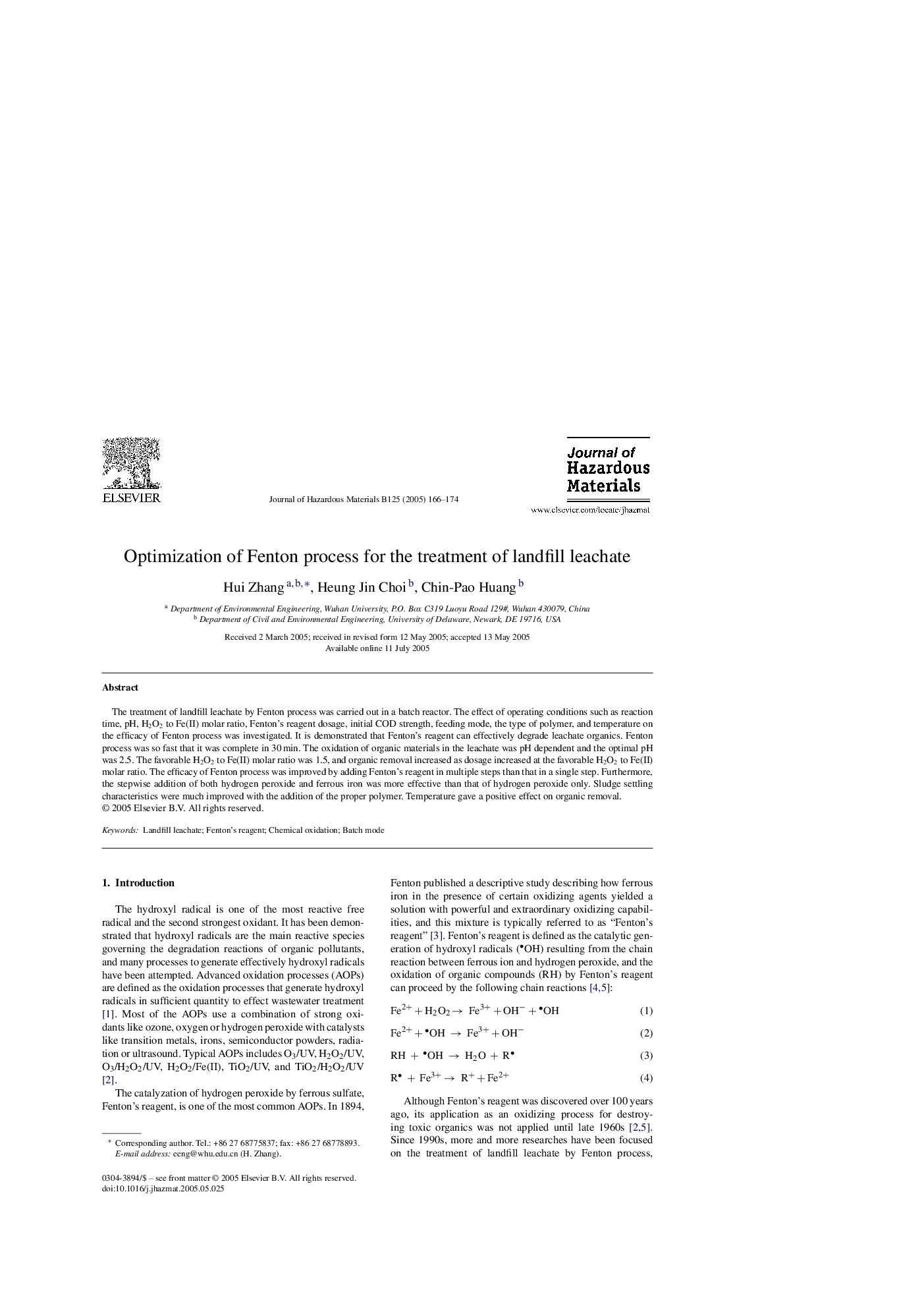| Article ID | Journal | Published Year | Pages | File Type |
|---|---|---|---|---|
| 9674132 | Journal of Hazardous Materials | 2005 | 9 Pages |
Abstract
The treatment of landfill leachate by Fenton process was carried out in a batch reactor. The effect of operating conditions such as reaction time, pH, H2O2 to Fe(II) molar ratio, Fenton's reagent dosage, initial COD strength, feeding mode, the type of polymer, and temperature on the efficacy of Fenton process was investigated. It is demonstrated that Fenton's reagent can effectively degrade leachate organics. Fenton process was so fast that it was complete in 30Â min. The oxidation of organic materials in the leachate was pH dependent and the optimal pH was 2.5. The favorable H2O2 to Fe(II) molar ratio was 1.5, and organic removal increased as dosage increased at the favorable H2O2 to Fe(II) molar ratio. The efficacy of Fenton process was improved by adding Fenton's reagent in multiple steps than that in a single step. Furthermore, the stepwise addition of both hydrogen peroxide and ferrous iron was more effective than that of hydrogen peroxide only. Sludge settling characteristics were much improved with the addition of the proper polymer. Temperature gave a positive effect on organic removal.
Related Topics
Physical Sciences and Engineering
Chemical Engineering
Chemical Health and Safety
Authors
Hui Zhang, Heung Jin Choi, Chin-Pao Huang,
